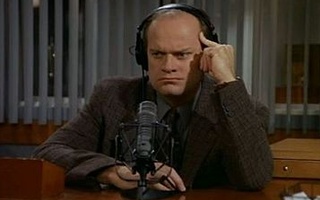Administrators and students explored whether extracurricular activities induce excessive stress and whether the transition to sophomore year can be eased at a Committee on Student Life meeting yesterday morning.
After a fall in the number of recognized student groups this school year from 409 to 392 clubs, the committee—which comprises Undergraduate Council members, House Masters, and College administrators—discussed the broader role of student groups on campus.
While some students emphasized the importance of student group events, especially for social life among freshmen, others considered curtailing the intensity of extracurricular activities, from postponing the activities fair until after study card day to decreasing the number of e-mails groups send.
“Even before you get here in the fall, you’re hit over the head with a barrage of e-mails from all these groups,” said meeting attendee Catherine G. Katz ’13.
Although administrators said that academics must remain students’ first priority, some students said that extracurricular activities dominate campus life and, consequently, their time.
Committee members spent the second half of the meeting discussing the transition to sophomore year.
A survey conducted in the Houses last academic year yielded positive reviews of the sophomore advising program. When asked if they were satisfied with the program, 84 percent of students surveyed either agreed or strongly agreed.
The committee discussed whether, in addition to the advising program, it would be beneficial to have a broader sophomore welcoming program or orientation as students transition from freshman dormitories to upperclassman Houses.
To integrate sophomores into House communities, committee members suggested ideas ranging from a class-wide welcome-back event in Annenberg Hall—which was dismissed because of the use of the space by freshmen—to having Dean of the College Evelynn M. Hammonds send an e-mail in August to welcome back returning students.
The group also talked about the concept of the “sophomore slump” and whether the College can help students avoid declining happiness during their sophomore year.
Many members said that the vibrancy of House Committees is particularly important for integrating sophomores into the House and maintaining student spirit.
—Staff writer Danielle J. Kolin can be reached at dkolin@fas.harvard.edu.
—Staff writer Naveen N. Srivatsa can be reached at srivatsa@fas.harvard.edu.
Read more in News
Lecture Discusses Qur’an TranslationsRecommended Articles
-
Hurry Now! Memories End Soon!There is no reason even to conform to the senior class's vision of special activities, because we can create our own memories, which can be more special than just another drink from the party punch.
-
Insistence on InvolvementCollege may be the only time that students can acquire and hone these skills without being expected to demonstrate them immediately—although the choice is left to them, we encourage students to take advantage of this time and of the academic gains that Harvard has to offer.
-
Why So Focused?Harvard students must do a better job putting liberal arts theory into practice in their extracurriculars
-
Unfinished BusinessLimiting the College’s liability seems to be the ultimate goal in student life policing (programming is too generous of a term), even when it comes at the expense of common sense, fun, and fairness.
-
City Council Discusses Cambridge's Extracurricular Activity OfferingsPointing out that the days of playing pick-up baseball after school are long gone, officials from the Cambridge City Council and the Cambridge Schools Committee discussed ways to enrich Cantabrigian students’ extracurricular lives at the Council’s weekly meeting Monday night.
-
 Harvard's Greatest Characters, at Harvard
Harvard's Greatest Characters, at Harvard













